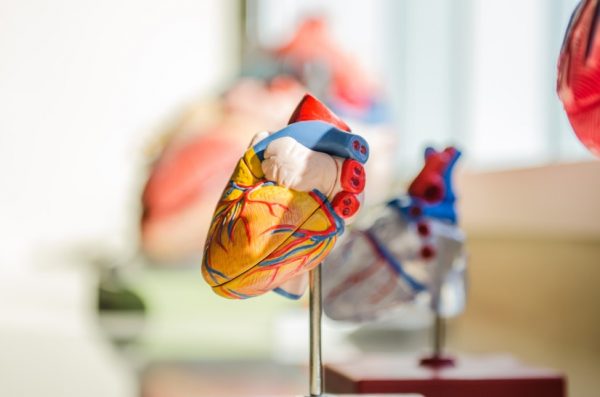
Clogged arteries? Take a look at your diet
Apart from diabetes, cardiovascular disease is one of the leading causes of death. Our heart health depends on our diet too. If there is an imbalance in our diet then it could lead to heart conditions, particularly blockage or clogging of arteries. High cholesterol and high blood pressure are two main reasons for clogged arteries. Arteries are blood vessels that are responsible for transportation of oxygen rich blood from heart to parts of the body. Arteries are structurally elastic, flexible and are strong.
Atherosclerosis is development of waxy substance inside arteries. This is also known as plaque. Plaque is combination of fat, calcium, toxic metals, cellular waste and LDL (low density lipoprotein). In addition, blood clotting fibrin will also accumulate. Plaque development is a slow process and can start at young age and develop with age. When plaque builds up inside artery blood flows slows or stops due to clogging. It is called ischemia where less oxygen reaches cells.
Reason for clogging of arteries are: Diabetes, high BP, high cholesterol, overweight, elevated triglyceride, lupus condition, stress particularly Type A personality, arthritis, smoking and inactive lifestyle.
Clogging of arteries leads to cardiovascular conditions like strokes, heart attacks or and, peripheral vascular disease. Cardiovascular disease is also known as silent killer as many times there will not be any symptoms related to disease. Once the condition advances then we might see certain symptoms.
Symptoms of clogged arteries depends on type of arteries that are clogged.
- Coronary artery: Arteries in the heart when clogged it is known as CHD or Coronary heart disease. Plaque that is developed because of high cholesterol blocks and narrows the coronary arteries. The pressure causes pain called angina and the pressure will reach from chest to jaw, neck, shoulders, arms and back. Shortness of breath and heartbeat varies.
- Renal arteries: A blockage in renal arteries leads to chronic kidney disease. It interferes in kidney function. Loss of appetite, tiredness, numbness, nausea, edema of hands and legs are common symptoms. If not addressed, it leads high blood pressure and finally kidney failure.
- Peripheral arteries: Blockage in peripheral arteries of leg, pelvis and arms results in pain and numbness. It can cause severe infection that could be dangerous.
Apart from medications, diet mainly helps to get rid of the clogging. Include following foods in your diet to stop clogging and to increase good cholesterol level.
- Garlic: Including garlic in diet helps arteries. Garlic is known for its blood thinning character. It slows down plaque formation by bringing bad cholesterol level down. It reduces stroke and heart attack risk.
- Turmeric: Curcumin in turmeric is good for cardiovascular health. It reduces LDL cholesterol and plaque. It prevents inflammation and damage of arteries.
- Ginger: An anti-inflammatory herb, ginger prevents plaque formation. It helps in bringing down triglyceride level and reduces total cholesterol formation.
- Vitamin C (lemon): Lemon juice helps to strengthen heart and arteries. It increases HDL and reduces inflammation. Drinking lemon juice water without sugar or salt in the morning is good for heart condition and for overall health.
- Cinnamon: Cinnamon boosts metabolism and lowers sugar level in addition it also acts on LDL cholesterol level. Including 2 to 3 grams of cinnamon in daily diet reduces cardiovascular disease risks.
- Flaxseed: Omega 3 fatty acid (alpha-linolenic acid) in flaxseed has positive benefit on heart health. It is also rich in fiber and helps arteries by preventing atherosclerosis.
- Fenugreek: Soak 2 teaspoon fenugreek seeds at night and morning eat soaked seeds in empty stomach. Fenugreek seeds and leaves contain trigonelline which is an alkaloid that has positive effect on diabetes and heart health. It reduces sugar and plaque formation in arteries.
- Pomegranate: Punicic acid in pomegranate reduces plaque. Magnesium and selenium slows down coronary artery disease. Drinking pomegranate juice reduces thickening of arteries.
- Spinach and leafy vegetables: Fiber rich green leafy vegetables are good for heart health. They provide no calorie and make digestion easy with digestive fiber. Leafy vegetables are good for losing weight and are also nutrient rich foods that prevent cholesterol build up in body.
- Blueberries: Highly recommended for reducing diabetes and cholesterol – blueberries contain vitamins, antioxidants and soluble fiber. Including blueberries in diet reduces heart attack risk and inflammation.
- Red wine: Antioxidants and resveratrol in red wine are heart friendly. Red wined lowers LDL and improves blood circulation. Consuming just one glass wine everyday is good for heart.
If you have any symptoms explained above in the article, contact your doctor and get test done. Following a proper and planned diet with heart friendly foods will reduce the risk of heart conditions. We are what we eat, make better choice for better health.
Image credit: Photo by jesse orrico on Unsplash (Free for commercial use)
Author: Sumana Rao | Posted on: November 21, 2019
« Tips to prevent winter allergy Why afternoon nap is good for you? »






















Write a comment